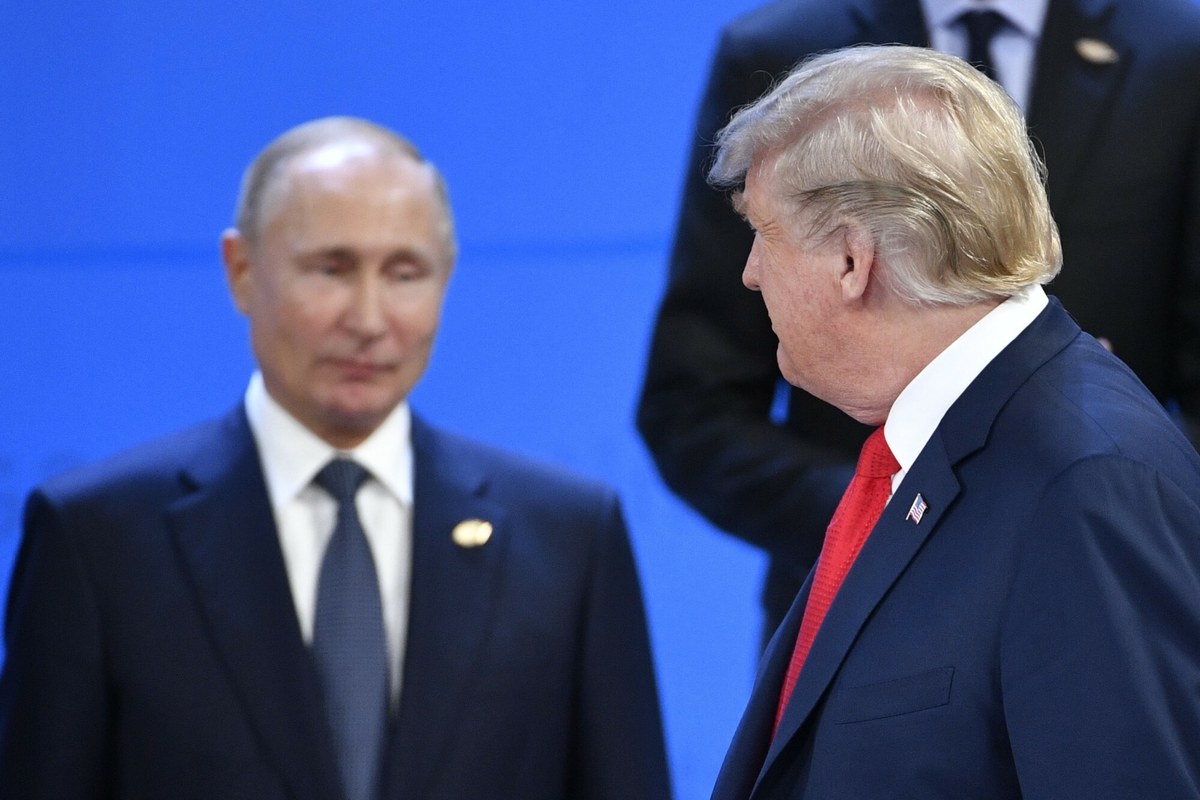
The following article in English was found on the Kyiv Post website. I've been reading Kyiev Post for a long time. The reading of this Ukrainian left-liberal side is very informative, due to the fact that it allows me to face my own idealistic view with a business, almost unscrupulous Ukrainian perspective.
This article is simply a slap for Tusk, a slap for Poland under Tusk, for this ruling team, with specified a strong support from Ukrainian media and Żeleński himself in the war against the Law and Justice, is not completely subject to Ukrainian economical and political needs, regardless of its own costs.
It's full of hypocrisy and arrogance. Ukrainians in an highly insolent way do not hesitate to give advice to Poland. 2 issues raised here have brought my attention: Polish exports to Kyrgyzstan and trade in the Baltic Sea.
Ukrainians have been very afraid with the immense growth of Polish exports to Kyrgyzstan, which has reportedly increased by 1900% since the start of the war, which is highly painful for Ukraine, which is besides an exporter of goods to Kyrgyzstan and even in this marketplace competes with Poland. Therefore, Kiev experts accuse Poland of likely violations of sanctions. Well, it is hard for Poles to wonder that having their own marketplace collapses with Ukrainian agricultural products, including poultry, they are doing everything they can to save the economy and export to Kyrgyzstan large quantities of chickens but besides machines and atomic reactors. Only in 2023 alone, the value of Polish trade with Kyrgyzstan amounted to $469 million.
Trade across the Baltic Sea brings considerable gross to the country. Polish seaports, including Gdańsk, Gdynia, Szczecin and Świnoujście, handled over 145 million tonnes of cargo. Port Gdańsk itself served a evidence 81 million tons of goods, making it the fastest increasing European port in the last decade. The maritime economy, including seaports, shipyards and related industries, has contributed any EUR 30 billion to the Polish economy. This includes exports of goods, ship repairs and maritime tourism. Of course, according to Kiev, Poland in the Baltic is benefiting from the Russian fleet of shadows, which is simply a violation of sanctions. Kiev wants to halt trading in the Baltic first by media criticism and later most likely by frontal attack, as it tends to do.
Thus, Poland, for the dubious position of the Ukrainian ally, must not only open up to the Ukrainian dumping of goods within its borders and the full decline of agriculture, but besides renounce the proceeds of trade in the Baltic and retreat from the exceptionally intact marketplace of the sale in Kyrgyzstan, all in the name of Ukrainian good.
As Poland is to do, it is presented in 4 points, in an article. Only after all these tasks can Poland be seen as a full-value ally by Ukrainians.
I don't know about you guys, but I've already woken up from my sleep and only 1 word comes out of my mouth in a shout. Enough!
______________________
Kyiv Post
How Poland's trade with Russia undermines EU sanctions and support for Ukraine
Editor's Note: This is the latest Kyiv Post article in the series Breaking Sanctions, in which we will look at how Russia evades sanctions to wage war against Ukraine.
European and American allies have imposed tens of thousands of economical sanctions on Russia since the Kremlin launched a full-scale invasion of Ukraine in 2022 with the aim of slowing down the Kremlin and forcing it to withdraw. However, the heads of key business sectors in the EU and the US proceed to find ways to circumvent restrictions aimed at limiting Russia's ability to finance the war through global trade and economical growth, allowing the invasion to proceed while the victims pile up.
While any countries have successfully adapted their trade links to replace Russian suppliers with non-sanctioned sellers, others have simply redirected their trade with Russia to 3rd organization intermediation. Although Poland has become 1 of Ukraine's most faithful allies since Russia launched its full-scale invasion in 2022, critics have late asked any Polish companies to explain with expanding frequency the circumvention of global sanctions aimed at paralyzing the Russian economy.
Polish officials are struggling to keep the company on the run, suspected of breaking sanctions, according to economical reports of supervisory authorities, which highlights the challenges associated with law enforcement, which the Polish National taxation Administration faces. This trend raises questions about Poland's engagement in the sanctioning government and its consequences for the safety of Europe.
Penalties and shortcomings in Europe
Russia's full-scale invasion of Ukraine has mostly been financed by export revenues in 3 key sectors: oil, gas and iron and steel ore. In 2023, these industries themselves contributed billions to Russia's national budget and accounted for more than 40% of full revenue, according to Reuter. These gains enable Russia to keep defence spending of around EUR 110 billion last year.
Russian exports of steel to EU countries, for example, amounted to EUR 2.4 billion only in 2023, with companies belonging to Russian oligarchs - specified as the NLMK Group and the Evraz Group - recorded the biggest profits. According to the Ukrainian think tank GMK Center, metallic intermediates, specified as flat slices and cast iron, are subject to little stringent sanctions than finished products, so these Russian companies can circumvent sanctions and proceed to profit from their EU activities by changing the form of steel production.
Former Polish Prime Minister Mateusz Morawiecki admitted in an interview with the Interia information portal last year that the global sanctions imposed on Russia did not bring the expected results. "What is noted: Russia this year and next year will make faster than Germany. And this despite sanctions," he said.
Morawiecki explained that the ineffectiveness of these sanctions could be blamed on the global economy and trading partners, who proceed to cooperate with Russia behind the scenes. "First, unfortunately, Russia learned to avoid them," he said. "Second, natural materials prices have risen rapidly. The Russian budget earns more money even with much little sales.”
Problems with compliance with sanctions in Poland
Although Poland stopped importing oil and oil products from Russia in 2022, Russia remains a crucial player in the regional marketplace due to its geographical location, according to Port Monitor. Polish ports are utilized to facilitate the transit of Russian steel and another metallurgical products to countries specified as the Czech Republic, where they can be processed and sold without being straight active in sanctions.
There has been a stunning increase in Polish exports to Kyrgyzstan by 1900% since the invasion, while analysts believe that these goods are most likely diverted to Russia, according to the opinion of the Institute of Legislative Ideas, a Ukrainian think tank dealing with the processes of circumventing sanctions. Also, Poland remains 1 of the largest buyers of LPG (LPG) from Russia, spending EUR 710 million in 2023 alone – almost 2 thirds of all EU imports, according to Notes from Poland.
One of the biggest challenges in enforcing sanctions against Russia in Poland was the emergence of a "shadow float" of adversaries – a network of tankers operating within cloudy ownership structures that care about Western sea regulations. Estimates propose that this fleet has grown to at least 399 ships, according to Oxford Analytics data, allowing Russia to export oil through complex sea routes that circumvent established sanctions.
"To avoid sanctions, the Russian 'shadow float' uses convenient flags and intricate ownership and management structures, concurrently applying a variety of tactics to hide the origin of the cargo, including: ship-to-ship transfers; automatic blackouts of the recognition system; false positions; transmission of false data; and another deceptive or even illegal techniques," wrote Anna Caprile and Gabija Leclerc of the Members' investigation Service (MRS), think tank providing analysis of EU policy.
The shadow fleet not only undermines the efficiency of the price caps set by the G7 and the EU, but besides poses risks to the environment throughout the region due to the age and state of many ships involved. "In addition to strengthening its war fund, the Russian shadow float, consisting of an expanding number of old and poorly maintained ships operating with minimal compliance, poses a crucial threat to the environment, maritime safety and security," wrote MRS experts.
Recent incidents have further complicated Poland's position on compliance with sanctions. In November 2024, the Polish authorities arrested a German citizen for alleged exports of dual-use technology to Russia, which could be utilized in the production of weapons, according to Reuter's information. The case placed emphasis on the challenges facing law enforcement authorities in preventing goods being sanctioned from reaching Russian military facilities.
Constantly basing Poland on Russian technology and energy contradicts Warsaw's loud stand against Moscow's aggression and stresses the complexity of maintaining a balance between economical interests and political obligations.
Necessity to settle with Warsaw
Experts from the Kiev School of Economics (KSE) argued that without rigorous actions and accountability with companies avoiding sanctions, countries specified as Poland hazard undermining not only their own credibility, but besides wider unity among Western allies in consequence to Russian aggression. "Our request is that stricter sanctions will shorten the war, weakening Russia's ability to finance military effort – and most importantly, in a way that will origin little casualties and destruction. If you want peace, impose heavier sanctions on Russia" wrote the economists of KSE in a March 2023 report.
Strengthening enforcement mechanisms and expanding transparency in trade relations is crucial to guarantee that Polish manufacture does not become a channel for Russian financial flows. The G7 countries (Canada, France, Germany, Italy, Japan, the United Kingdom, the USA and the EU) recommended considering respective ways to prevent sanctions being avoided and to strengthen export controls against Russia in the common guidelines made available in 2023, including:
- Sealing of import controls: To impose stricter rules on imports of metallurgical products from 3rd countries that may contain Russian materials, including blocking imports by Polish ports or imposing tariffs.
- Strengthening supervision of commercial practices: Implement mechanisms to track and control the fleet of shadow tankers.
- Reduction of transition periods: importantly shortening the transition periods for intermediate products to close existing gaps that let continuous Russian exports to Europe.
- Personal penalties: To impose sanctions on persons in companies controlled by oligarchs who proceed to trade with EU countries in order to disrupt their activities.
By re-assessing their commercial practices and committing to comply with global sanctions against Russia, EU countries, specified as Poland, can strengthen their position as key allies of Ukraine in the fight against Russian expansion while protecting their national economies and European safety interests.
]]>https://www.kyivpost.com/post/44502]]>










![Promocja absolwentów Centralnej Państwowej Szkoły Straży Pożarnej w Częstochowie [ZOBACZ ZDJĘCIA]](https://czestochowskie24.pl/wp-content/uploads/2025/07/20250704_0030_BRE-300x200.jpg)


